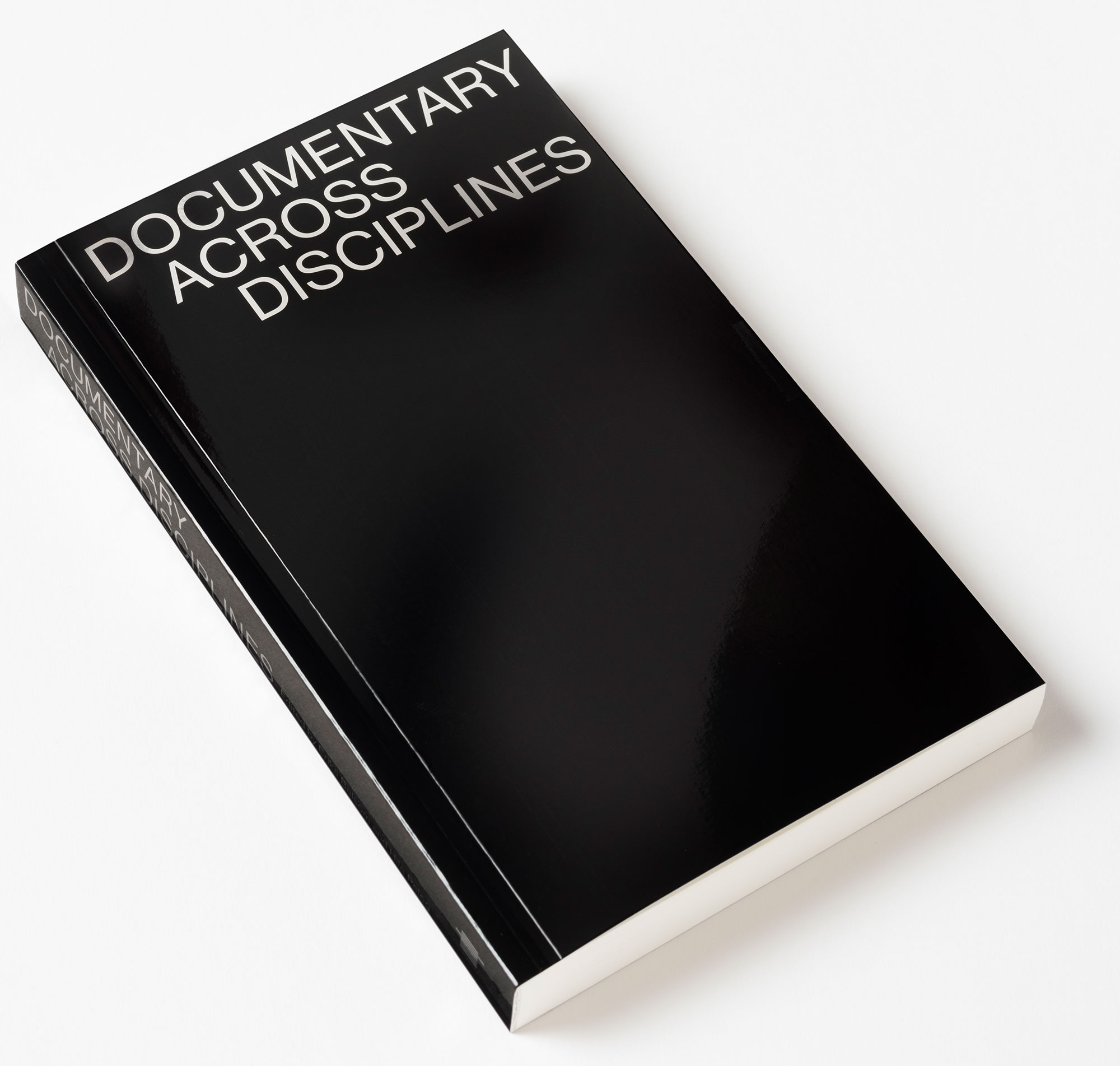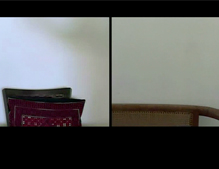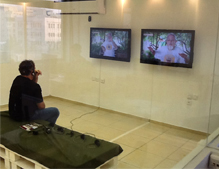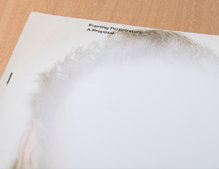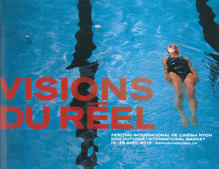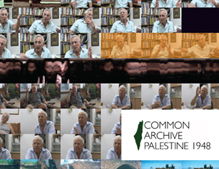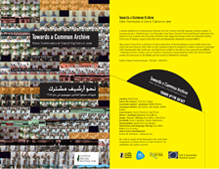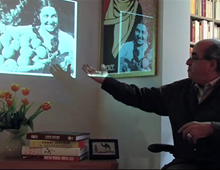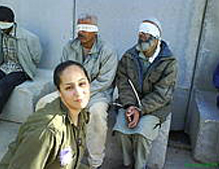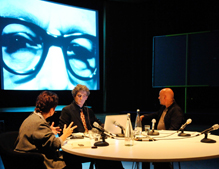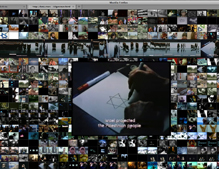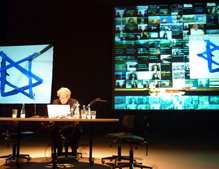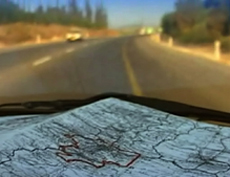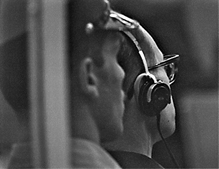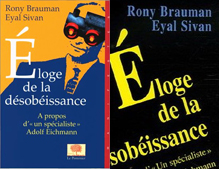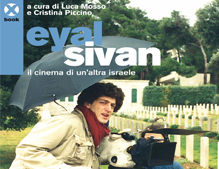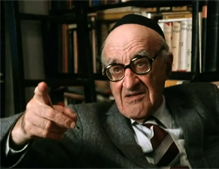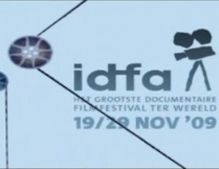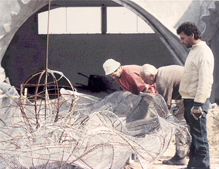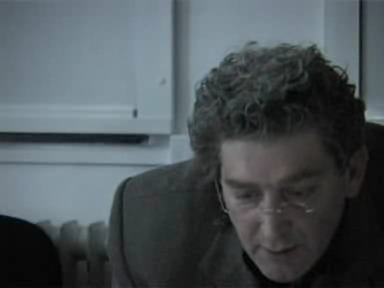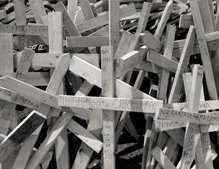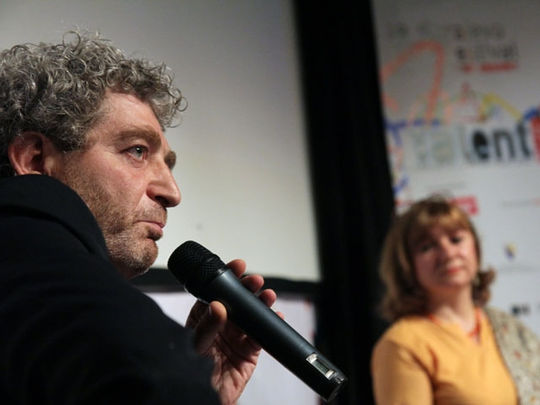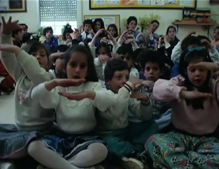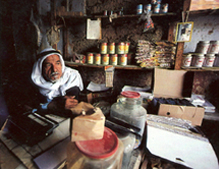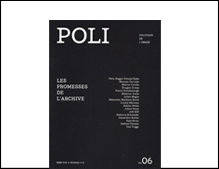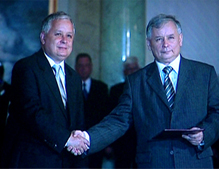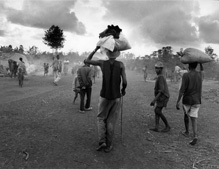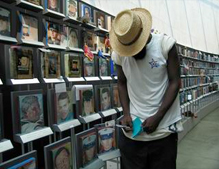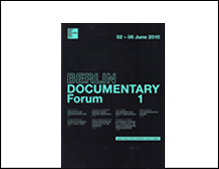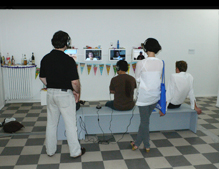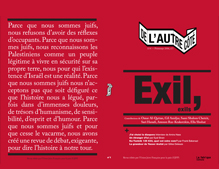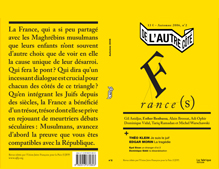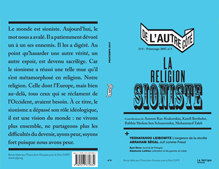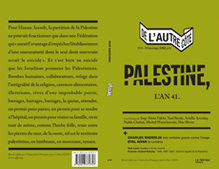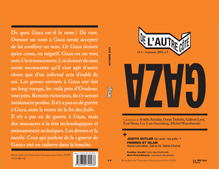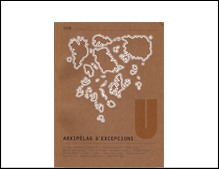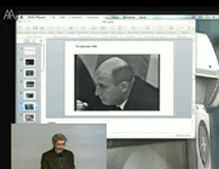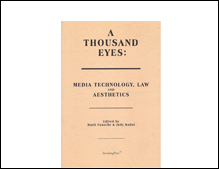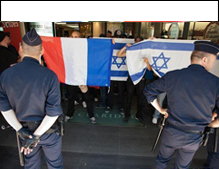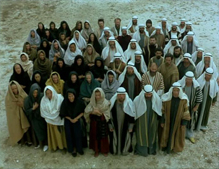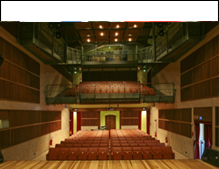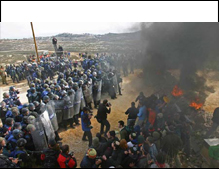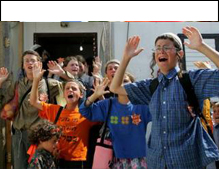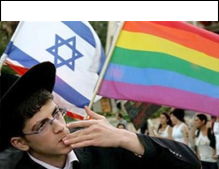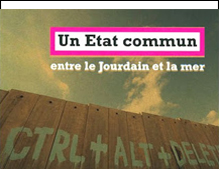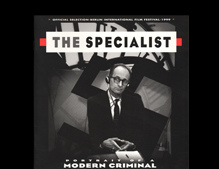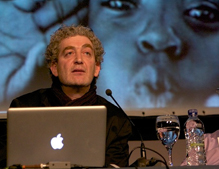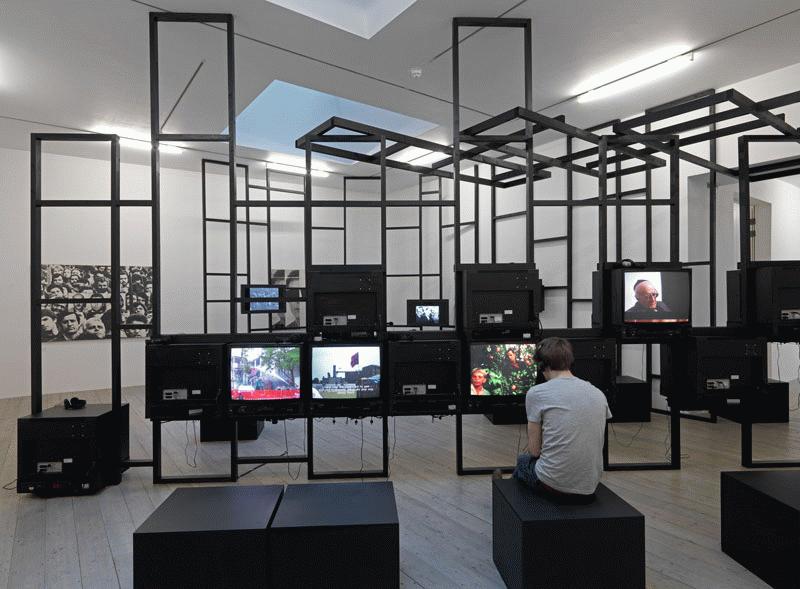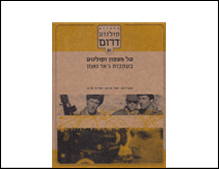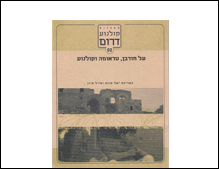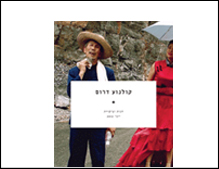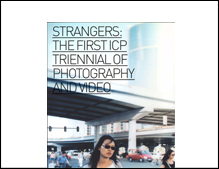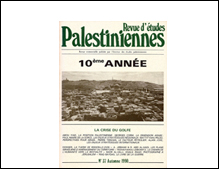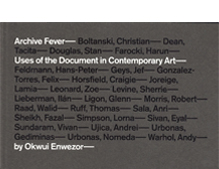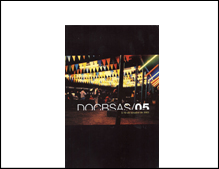-
Proposal for a visual media exhibition
with the participation of students of the Master of Film at the Dutch Film Academy, Amsterdam -
Get my films
Buy DVDs online at www.momento-films.com -
IZKOR
slaves of memory
Documentary film | 1990 | 97 min | color | 16mm | 4:3 | OV Hebrew ST -
Common Archive Palestine 1948
web based cross-reference archive and production platform
www.commonarchives.net/1948 - Project in progress - -
Montage Interdit [forbidden editing]
With professors Ella (Habiba) Shohat and Robert Stam / Berlin Documentary Forum 2 / Haus der Kulturen der Welt / June 2012 -
Route 181
fragments of a journay in Palestine-Israel
Documentary film co-directed with Michel Khleifi | 2003 | 272 min [4.5H] | color | video | 16:9 | OV Arabic, Hebrew ST
-
The Specialist
portrait of a modern criminal
Documentary film | 1999 | co-author Rony Brauman | 128 min | B/W | 4:3 | 35 mm | OV German, Hebrew ST -
Jaffa
the orange's clockwork
Documentary film | 2009 | 88 min | color & B/W | 16:9 | Digital video | OV Arabic, Hebrew, English, French ST
-
Montage Interdit
www.montageinterdit.net
Web-based documentary practice. A production tool, archive and distribution device | project in progress
-
Common State
potential conversation [1]
Documentary film | 2012 | 123 min | color | video | 16:9 split screen | OV Arabic, Hebrew ST -
Towards a common archive
testimonies by Zionist veterans of 1948 war in Palestine
Visual Media exhibition | Zochrot Gallery (Zochrot visual media lab) | Tel-Aviv | October 2012 - January 2013
-
I Love You All
Aus Liebe Zum Volk
Documentary film co-directed with Audrey Maurion | 2004 | 89 minutes | b/w & color | 35mm | OV German, French ST
reviews
Road To Perdition by Harlan Jacobson (Film Comment)
01.02.2005
Route 181, a controversial epic documentary about the state of relations between Israelis and Palestinians, scoops up plenty of reality on the ground, while history slips through its fingers.
Route 181 is one hot latke. Filmmakers Eyal Sivan and Michel Khleifi went on a road trip in the summer of 2002 from just outside Gaza in the south of Israel up into the Galilee in the north. All along Route 181, the original partition boundary established by the UN in 1947 that was abrogated by the 1948 war, they let their videocam roll on the theory that the vox populi would represent a greater truth about Israel than what we've heard to date. Silvan is an Israeli, Khleifi a Palestinian.
What they didn't do is as significant as what they did. There are no TV setups in front of the Knesset, the Dome of the Rock, or the Wailing Wall. They didn't talk to any big-picture players, thinkers, or scholars. The result is a decontextualization of history.
Forget the British. Forget the French. Forget Euro-colonialism. Forget the German rampage through a predominantly acquiescent Europe and the Holocaust that turned Jews into ashes or refugees. Forget oil and corporate statecraft by the U.S., Europe, and Russia. Forget Cold War political jockeying.
Forget Arab plutocracy and its pre-Enlightenment, fundamentalist resistance. None of it exists at the level of conversation Silvan and Khleifi engage with ordinary folk. "The Jews shot us like rabbits," one old Palestinian lady weeps. "Deport them all," an apple-cheeked Jewish bubbe and café owner says.
Sivan and Khleifi don't pretend to be even-handed, or ecumenical, or to mutually lament the sad death grip their peoples have on one another that as artists, they seem to say, they have transcended.
Perhaps that's because Silvan is in sync with Khleifi's point of view, which is to say a Palestinian viewpoint, that Jews from Europe and the U.S., over the course of the last 120 years, invaded and confiscated a land whose people had a culture and a history, if not a functioning state, and have tyrannized beyond all shame those they didn't drive to other countries, or into refugee camps, or kill in a clockwork war of daily terror. You can feel the filmmakers gloat as they ask an Israeli soldier if he's read Hannah Arendt or ever heard about the banality of evil.
If you start from zero, as Silvan and Khleifi do, there is really nothing to do but drive your car (and your polemic) toward a one-state solution in which displaced Arabs return to assume control of the new state of Palestine (no discussion of displaced Jews returning to the lands they fled). Two states?
Did King Solomon not prepare to divide a baby in half until the real mother relinquished her claim?, Silvan and Khleifi ask their subjects. Indeed, the tragedy Silvan and Khleifi record along Route 181 is that of loss (of peaceful coexistence between Arab and Jew) in a supposedly simpler, stateless time.
At street level, nostalgia for an illusion substitutes for history and is held out as reassurance enough for Israelis to relinquish-what? Everything? That's the subtext underlying the conversations throughout Route 181.
Would that they had found Amos Oz, the Israeli writer and former resident of Kibbutz Hulda, whom I long ago heard say words to the effect that "the tragedy is that both sides are jabbing at ghosts. Jews think they're fighting extermination by the Nazis, Arabs by the Brits. They don't see each other."
I wonder what Oz thinks now. We don't learn it in Route 181, but the filmmakers did go to Hulda and found an older Israeli who somewhat imprecisely remembers that the Jewish National Fund bought Arab land prior to 1948. "Is it morally right for a person born in New York or Paris to be on Palestinian land?" they ask a Jewish man. The land belongs to him, he answers, "and to the Jewish people's historical connection to it"-an arguable concept that the film sidesteps in favor of simple contempt.
The testimony Sivan and Khleifi record instead from Jew and Arab alike over the two-month trip is intended to build a mosaic of unofficial evidence introduced at a kind of trial of Israel in the court of world opinion. Route 181 is filled with populist prattle that promises more than it delivers, much the way its European financiers likely subscribe to the fashionable mantra that being anti-Israeli is not the same thing as being anti-Semitic-which conveniently lets Europe pretend that it had no hand in the Middle East, or North Africa, or for that matter in Jewish extermination in WWII except as an ignorant bystander. Out of some calculations between fear of seeming anti-Semitic and riling up its Muslim population, the French government bagged a screening at the Cinema Réel festival last March after it showed on the Arte cable channel.
Each stop Sivan and Khleifi make along the way to chat is bracketed by the long road in and the long road out of the sequence. At four and a half hours, the length of the film, you could drive from Eilat to Jerusalem and hear better for yourself. Or you could simply succumb to the same kind of
accumulated gibberish that people all over the world utter every day about the state of their particular political situations, the venality of their leadership, the purity of the founding national dream perverted by infidels and immigrants, the debased cultural ideals turned rancid by the irony of being stood on their head. Can you imagine what you'd hear from Mobile to Memphis to Maine if you mostly talked to truck drivers, retirees, and kids deprived of any and all history-and didn't talk to anyone with anything to say other than anecdotal bile?
For the most part, Israelis along Route 181 range from the merely disappointed to the grotesque; Arabs are depicted almost uniformly as benign victims. The closest one gets to any other possibility is a Jewish émigrée from Morocco, who reminisces with her Tunisian husband about the tranquility of Tunis. After a lifetime of feeling screwed by Israeli immigration propaganda, she huffs, "Sharon and Arafat should be shot with their mothers."
Would that there were more of her. The film is an insult to peace.

